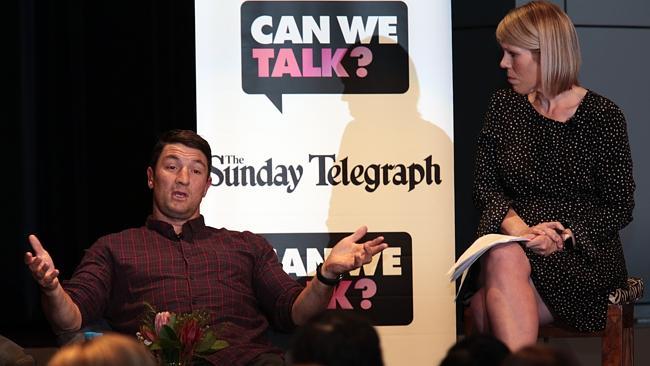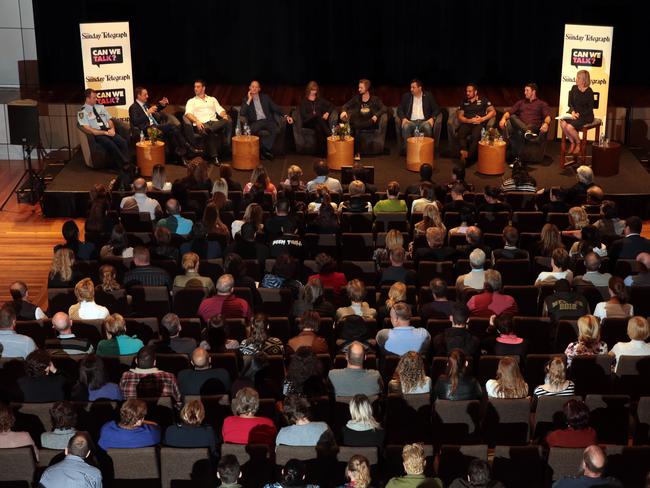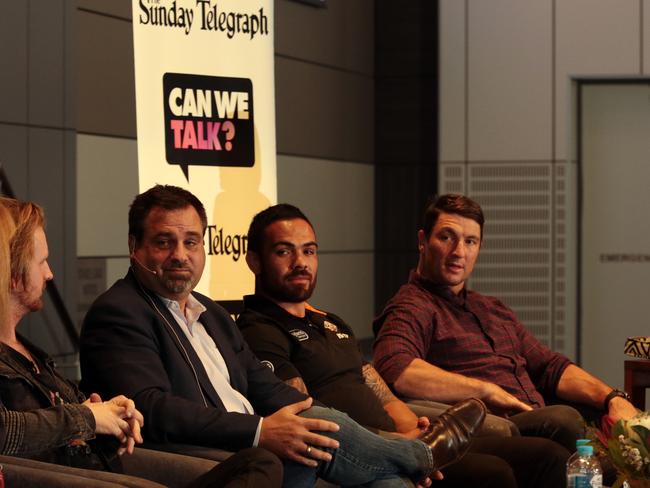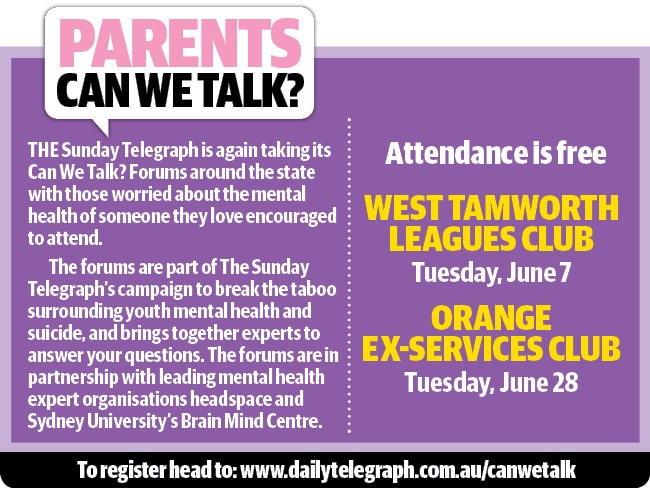Can We Talk forum: Listening with love key to unlocking the hearts of a troubled teens
LISTEN with love and find help rather than trying to solve everything alone were the key messages of the first Can We Talk forum of 2016, in a bid to tackle mental health head on.

NSW
Don't miss out on the headlines from NSW. Followed categories will be added to My News.
LISTEN with love and find help rather than trying to solve everything alone were the key messages of the first Can We Talk forum of 2016.
More than 400 parents, children, educators and concerned citizens packed the Campbelltown Catholic Club on Wednesday night united by a desire to tackle mental health head on.
They heard from a panel of mental health experts, NSW Police, NRL State of Mind ambassadors and individuals with lived experience of mental ill health.


Lifeline CEO Pete Shmigel gave an emotional account of his son Tim’s multiple suicide attempts and the profound effect it had on him.
“He was an A-grade student and a representative footballer who was failed by his father,” Mr Shmigel said.
“I was not listening to my kid. He came out of that dark place when his old man and some of the other people started not just listening, but listening with love.”
Mr Shmigel said listening and listening with love are two different things.
“It is a listening of total commitment. It’s one of ‘I’m not going to give advice, I’m just going be here with you in an unconditional positive way’,” he said.

As a father of four and concerned parent, panel member Nathan Hindmarsh opened up about his struggles to get through to his young son and his own brush with depression following his retirement from rugby league.
University of Sydney’s Brain and Mind Centre co-director Professor Ian Hickie said getting through to young men is often about doing rather than saying.
“Talk while doing, such as sharing an iPad, playing a game, doing a kid’s version of the Men’s Shed,” he said.
“Often you have the chance for (deeper) conversations when you are talking about something rather than talking directly and interrogating them.”

Audience members questioned the panel about the role of social media, helping fellow school students who are struggling, and whether medication is necessarily the answer to mental ill-health.


